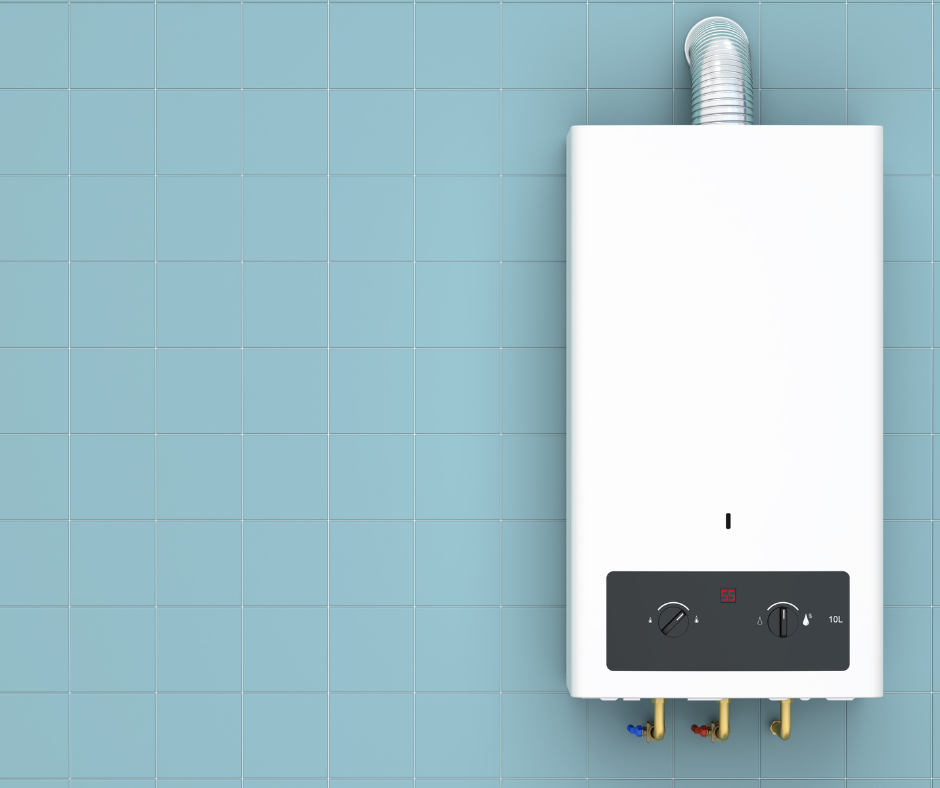Tankless water heaters have become a popular option for homeowners. They’re known for their energy-efficiency and compact size compared to the traditional storage tank water heaters. That’s not to say there is anything wrong with traditional water heaters because there’s definitely a need for those, too. Today, we are talking about tankless water heaters though. The real question is this – are they the right choice for your home? Let’s find out by exploring the key pros and cons.
Pros of Tankless Water Heaters
Energy Efficiency: Tankless units only heat water when it’s needed rather than constantly maintaining a tank temperature. According to the U.S. Department of Energy, the on-demand operation of a tankless water heater can reduce water heating costs by 24-34%.
Space Saving: Tankless water heaters got their name for exactly the reason their name implies – there is no storage tank. Instead of needing space in your home for a tank that holds 40+ gallons of water, tankless heaters are often mounted on a wall taking up about the same area as a carry-on suitcase. As you can imagine, this frees up valuable floor space or even an entire closet in some instances.
Endless Hot Water: Sick of cold showers because too many people are getting ready at the same time? You’ll love that tankless water heaters can heat an endless amount of water whereas traditional tanks only have as much hot water as the tank holds.
Longer Lifespan: While storage tanks typically last 10-15 years, tankless heaters have a lifespan of 20 years or more with proper maintenance. With an average lifespan of 5-10 years longer, a tankless water heater would need to be replaced less frequently.
Just like everything in life, nothing is perfect. Let’s look at some of the not-so-good qualities of tankless water heaters.
Cons of Tankless Water Heaters
Higher Upfront Costs: Good quality tankless water heaters can cost nearly double what you would pay for a 40-50 gallon water heater. The reason for the increased cost is due to the higher cost of the unit and more technical installation requirements.
Flow Rate Limitations: Running multiple hot water appliances at once could result in temperature fluctuations or insufficient hot water delivery because they typically have a maximum flow rate. That simply means that they can only service so much demand at one time.
Special Venting Required: If you have a gas-fired tankless heater, you might need special venting when the tankless water heater is installed. Depending on your particular needs, this could increase installation complexity and costs compared to standard metal flues.
Maintenance Considerations: There are 2 main things to keep in mind when it comes to tankless water heater maintenance. First off, although tankless units are most commonly installed indoors, they can be installed outdoors as well. Installing them outdoors exposes them to weathering. Secondly, it’s important to flush the unit annually to prevent scale buildup caused by hard water conditions. This is recommended by the tankless water heater manufacturer. If you decide to forgo the annual maintenance, you run the risk of premature heat exchanger failure and other system issues that can severely impact the longevity of the unit.
While there are pros and cons to both water heater varieties, tankless models offer lower operating costs, endless hot water, and longer equipment lifespan. Like everything, there are some downsides to choosing tankless units, so it’s always a good idea to speak with a qualified plumber to assess your household’s specific needs and suitability for a tankless system. At Right Choice Plumbing & Rooter, you can be assured that our technicians can help you make the best choice to meet your particular needs.


